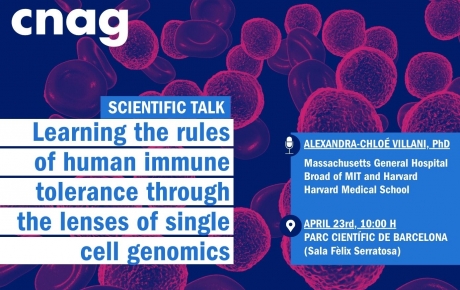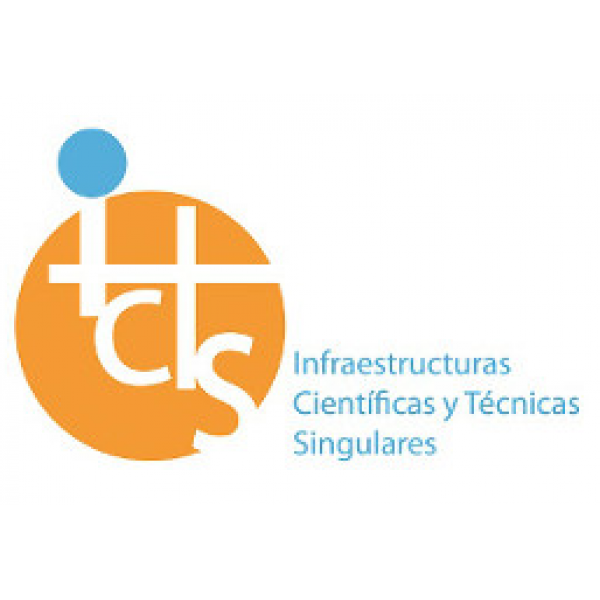
April 23rd, 2024
Aula Fèlix Serratosa (Parc Científic de Barcelona)
SCIENTIFIC TALK
"Learning the rules of human immune tolerance through the lenses of single cell genomics"
By Alexandra-Chloé Villani, PhD
- Director, Single Cell Genomics Research Program, Massachusetts General Hospital (MGH)
- Principal Investigator, Krantz Family Centre for Cancer Research, MGH
- Institute Member, Broad Institute of MIT & Harvard
- Assistant Professor, Harvard Medical School
ABSTRACT
Immune checkpoint inhibitors (ICIs) regulate T cell activation and tolerance, allowing the immune system to overcome cancer’s evasion of immunogenicity and reestablishing its ability to attack tumor tissues. ICI therapies have revolutionized cancer treatment and are FDA-approved across over 80 indications in the United States. Unfortunately, ICIs also lead to immune-related adverse events (irAEs) in 66-96% of cancer patients, with up to 50% experiencing severe irAEs that require immunosuppressive therapy or cessation of ICI treatment. irAEs are thought to arise from a loss of self-tolerance, though the antigens and pathways involved remain unclear. Notably, wild-type mice treated with ICIs do not develop severe irAEs, which limits their utility in understanding irAEs and supports the critical need for our translational program that will be discussed during the seminar.
Interestingly, the clinical presentations of irAEs can phenocopy autoimmune disease presentations. Beyond helping cancer patients, studying the underpinnings of these irAEs thus also represent an opportunity to further learn rules of autoimmunity, which we are studying using complementary cutting-edge unbiased experimental (e.g., single-cell RNA-sequencing, T cell receptor and B cell receptor sequencing, proteomics, microscopy, antigen mapping) and integrative analytical framework empowering the direct analyses of paired irAE tissues, blood, and tumors from patients. To-date, we have assembled cohort of over 500 cancer patients across irAE presentations (i.e., myocarditis, colitis, hepatitis, arthritis, endocrinopathies, pneumonitis, nephritis, neurotoxicity) and data from over 2M cells in paired tissue, tumor, and blood, allowing us to develop a detailed understanding of the molecular and cellular pathways involved in driving the break in immune tolerance resulting in irAEs. Our results show that irAE presentations are not created equal and that multiple independent mechanisms are involved in disease pathogenesis across organs. We have identified several novel drug targets across organs to mitigate irAEs and nominated circulating biomarkers predicate of irAEs and outcomes. Collectively, our effort embodies a true bench-to-bedside evaluation of new disease entities. Our initial findings are already supporting the critical and growing scientific and medical need to understand the drivers of irAEs and develop therapies that will blunt irAEs while maximizing anti-tumor immune responses.
ORGANISED BY CNAG











